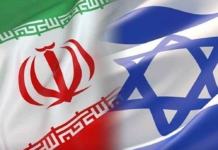First thing first: I am writing this piece of The Side Mirror with a heavy heart. This piece is dedicated to the rise and fall of Imran Khan, a controversial as well as popular figure in politics for many years. We remember his rise to prominence as a cricketer, leading the Pakistan team to victory in the 1992 World Cup. In those times, he was our hero. Later on, he built a charity cancer hospital and became an iconic figure. Then he stepped into politics. He worked hard; he became the prime minister of Pakistan; now, he is going to become history.
His negative politics have alienated many Pakistanis. His supporters see him as a charismatic leader who can bring about change, but his critics see him as a dangerous demagogue.
In the realm of politics, there are leaders who inspire, unite, and strive for progress, and then there are those who choose a different path altogether. Imran Khan, during his tenure in government and subsequent stint in opposition, seemed to have found solace in the politics of agitation and revenge. His relentless pursuit of personal vendettas and his reckless disregard for the well-being of Pakistan have left a bitter taste in the mouths of many.
Imran Khan has a long history of agitation. He has been involved in protests and demonstrations against the government on numerous occasions. In the past, he has even led sit-ins and hunger strikes.
Khan’s agitation has often been disruptive and has led to violence. In 2014, he led a sit-in in Islamabad that lasted for over two months. The sit-in caused widespread disruption and led to the deaths of several people.
Khan’s agitation has also been divisive. He has often used inflammatory language and has accused the government of being illegitimate. This has led to a rise in tensions and has made it difficult to find common ground.
Throughout his time in power, Khan displayed a penchant for targeting his political rivals and the esteemed army, often resorting to the court of law as his weapon of choice.
Instituting cases against his opponents and imprisoning them, he sought to silence any dissenting voices. But what he failed to realize was that his actions undermined the very foundations of democracy and tarnished the principles he claimed to uphold.
One cannot forget the consistent stand Imran Khan took against the army, pushing the boundaries of their tolerance. His gherao tactics and negative politics reached new heights, and on May 9 of this year, he crossed a red line that should never have been approached. Instigating the youth to attack the military, he forgot that the Pakistani army is the epitome of discipline and strength. In doing so, he not only weakened the institution but also jeopardized the survival of the nation itself.
The repercussions of Khan’s negative politics have been severe, resulting in mass desertion from his own party. Loyal workers like Maleeka Bukhari and Musarrat Cheema, who were once staunch supporters, have now abandoned him. These individuals, along with many middle-class women who were drawn to politics by Khan’s promise of change, have been left disillusioned and betrayed by his actions.
One cannot help but draw a stark contrast between Khan’s anti-army stance and the steadfast loyalty displayed by Nawaz Sharif, despite enduring political and state oppression. Sharif, regardless of the hardships he faced, never uttered a single word against the state or the army. His commitment to the betterment of Pakistan and his ability to navigate the complex landscape of politics without resorting to negativity is a testament to true leadership.
It is high time for Imran Khan to reflect upon his past actions and reconsider his approach. The best course for him now is to express regret for the damage caused and to join hands with other politicians in a united pursuit of prosperity for Pakistan. The nation is in dire need of leaders who prioritize unity and progress over personal vendettas and divisive tactics.
Pakistan deserves a leader like Nawaz Sharif who can inspire its citizens, strengthen its institutions, and work towards the collective good. Nawaz Sharif’s past performances as prime minister speak for him. Imran Khan’s negative politics have proven to be a dead-end road, leading only to division and discontent. It is time to choose a new direction, one that can foster unity and bring about positive change.
As an ordinary media person, let me hope that Khan finds the wisdom and humility to reassess his path.
If Imran Khan is willing to change, he could be a great leader for Pakistan. He could help the country overcome its challenges and achieve its full potential. However, if he continues to use negative politics, he will only damage Pakistan and make it more difficult for the country to succeed.
The future of Pakistan hangs in the balance, and it is in the hands of its leaders to steer the nation towards a brighter tomorrow.
E-Paper link: https://minutemirror.com.pk/story/?text=2023/05/Page-3-lhr_05-8







“ Pakistan deserves a leader like Nawaz Sharif”
That only sentence is enough to prove intellect of the writer.
Nawaz sharif and his dynastic politics is reason where Pakistan is today.